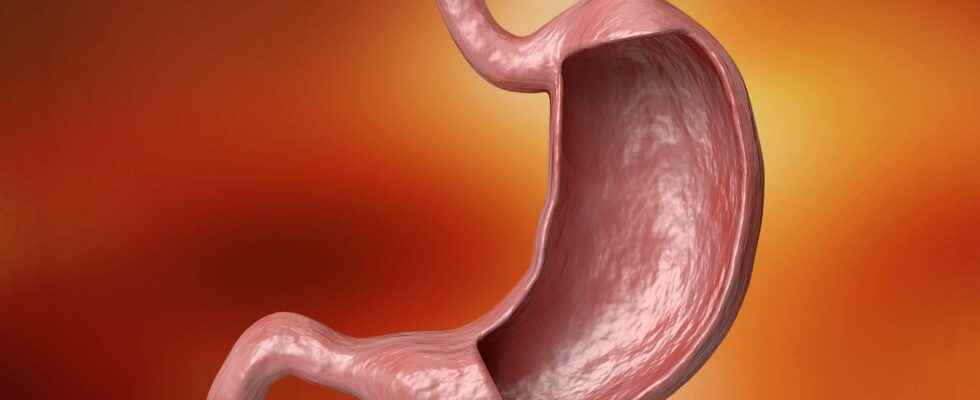Gastrectomy is a ablation total or partialstomachwhose main indication is the stomach cancer. The stomach stump or cardia is directly connected to the duodenum.
Sleeve gastrectomy, also called longitudinal gastrectomy, involves removing 2/3 of the stomach lengthwise to form a tube. Intended for the treatment of severe obesity (BMI >40 or >35 associated with at least one complication), it is the operation of bariatric surgery the most frequently performed. It differs from gastroplasty (gastric ring) and bypass (installation of a bypass leaving the stomach in place). The weight loss usually observed is about 4 kg per month for the first six months, then 2 to 4 kg per month. The weight loss at 10 years is about 65% to 70% of the initial excess weight.
Side effects of gastrectomy
These symptoms are especially present for total gastrectomies and in the postoperative period. Over time, the jejunum will gradually expand and the effects will fade.
- Loss of appetite due to lack ofhormone in triggering hunger.
- Feeling offull stomach even with small meals.
- Dumping syndrome: sudden arrival of undigested food in the small intestine, which leads to digestive disorders (nausea, diarrhea, pains abdominal), neurological (drowsinessmalaise) and circulatory (sweats, puffs of heatpalpitations), followed by hypoglycemia two to three hours after the meal.
- deficiencies in vitaminsespecially in vitamin B12absorbed in the stomach.
- Bile reflux, with possible inflammation of theesophagus Where gastritis.
These effects can be prevented by an appropriate diet (splitting meals, chewing food well, drinking outside meals).
You will also be interested
Interested in what you just read?
